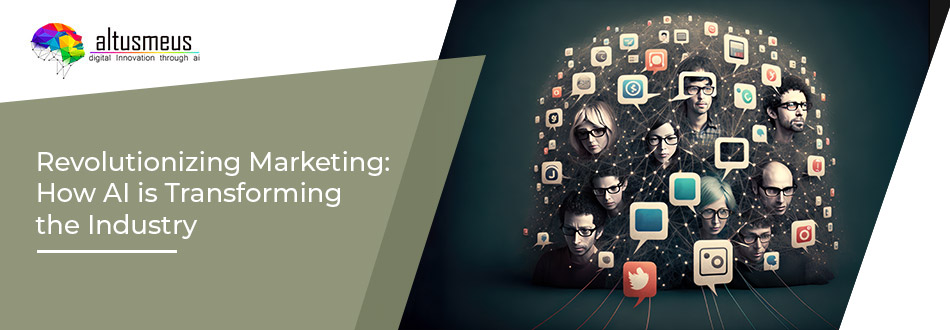Like any other field, marketing is also dynamic in nature and has seen many changes in the past 100 years. Marketers used methods such as door-to-door sales, pamphlets, and radio advertisements for their marketing campaigns. Over time, people have changed their consumption and buying habits, and as a result, the marketing methods that were once effective – such as door-to-door sales, pamphlets, and radio advertisements – have become obsolete in the 21st century. Back in the 1980s, marketing on mobile devices was inconceivable, but now we live in a time where the largest companies from all over the world conduct their marketing campaigns through online methods.
As new technologies have developed, marketing has evolved and marketers have adopted the best available technologies, from the printing press to digital devices and the internet. AI is one such revolutionary technology that some marketers and content creators have already started to utilize, and it is expected to be increasingly used in future marketing campaigns.
AI is undoubtedly a revolutionary technology, much like the printing press, but it has not yet had the same impact as the printing press had in its time. While AI is progressing, it is still in its infancy, and it will require time to reach a level where it can exhibit true intelligence and creativity like humans, without any limitations.
Artificial intelligence in marketing
AI is a disruptive technology that is transforming the marketing landscape, and businesses that can quickly adapt to these changes are likely to gain an advantage in the industry. As previously mentioned, some marketers and content creators have already started utilizing artificial intelligence, highlighting the importance of embracing this technology to stay ahead of the competition.
Marketers have already begun leveraging AI in various ways, and here are some examples:
Creation of content
Creating high-quality and useful content for a target audience is a challenging task, but AI has made this process comparatively easier. Marketers can now leverage AI-powered digital tools to create visually appealing infographics, such as Midjourney, by providing them with the necessary inputs. Additionally, ChatGPT can be utilized for content research and writing marketing emails, slogans, and more. Many digital tools powered by AI are simplifying time-consuming tasks for marketers and streamlining the content creation process.
Marketing research
Marketers are leveraging a variety of AI tools to conduct research on their competitors and target audience, significantly improving the accuracy of their findings. In addition, they are utilizing AI to research legal matters that may impact their marketing strategy, ensuring that their marketing plan is compliant and based on thorough research of competitors and potential customers.
Automating various tasks
Companies are leveraging AI tools to automate routine tasks that don’t require human creativity or critical thinking, freeing their workforce to concentrate on more important and relevant tasks, such as developing a marketing strategy. Tasks like social media management, calendar scheduling, and email sorting can all be automated with AI, increasing employees’ bandwidth and productivity. By automating routine tasks, businesses are maximizing their workforce’s potential and enabling them to be more efficient and productive.
Big data analysis
The 21st century has ushered in an era of abundant data, with social media platforms such as Facebook, Twitter, Instagram, Snapchat, and YouTube providing users with a platform to share valuable insights. However, making sense of this data has been a challenge until recently, with advancements in computing and technology enabling the development of AI-powered tools that help marketers and companies analyze it. This analysis allows companies to understand their consumers’ needs and preferences, allowing them to make adjustments to their products and services accordingly. In addition, marketers can leverage this data analyzed by AI to create tailored content that resonates with their target audience, leading to increased engagement and effectiveness of their marketing campaigns.
Conclusion
With the rapid advancement of AI technology, marketers have a new era of possibilities to create content, conduct research, and automate tasks. The limitless possibilities of AI can help marketers streamline their marketing campaigns, target audiences more precisely, and ultimately achieve their goals more efficiently. Those who recognize the importance of AI and quickly adapt to its advancements are likely to gain a significant advantage in the marketing landscape. To improve their marketing strategies, marketers must stay up-to-date with the latest AI developments and explore innovative ways to use them.





